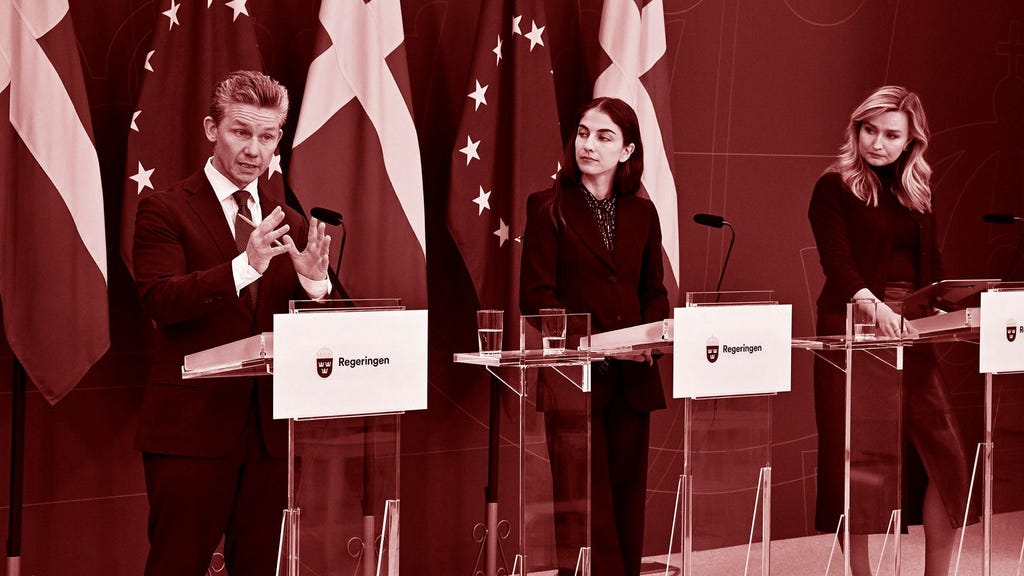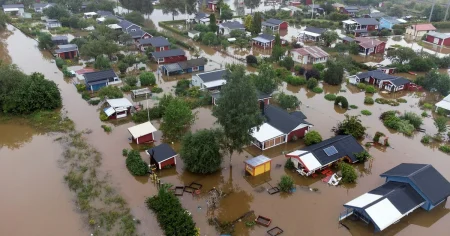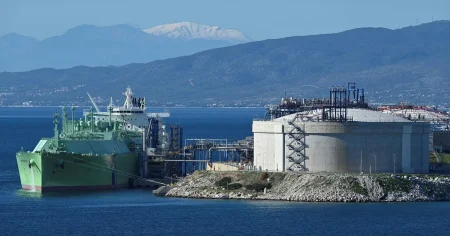The Swedish government’s recent rejection of 13 offshore wind power projects in the Baltic Sea, citing security concerns, has sparked debate and raised questions about the government’s true priorities. While Defense Minister Pål Jonson, a highly respected figure, presented the decision alongside Energy Minister Ebba Busch and Climate Minister Romina Pourmokhtari, lending weight to the security argument, a closer examination reveals a more complex picture.
The government’s rationale, while seemingly irrefutable on the surface, doesn’t hold up under scrutiny when compared to other nations facing similar geopolitical realities. Countries like the UK and the Netherlands, while not bordering the Baltic Sea, have invested heavily in offshore wind power. More pertinently, Poland, a Baltic state sharing a border with Russia and acutely aware of security risks, is also aggressively pursuing offshore wind energy. These countries have successfully integrated military considerations into their planning processes, demonstrating that security concerns and wind power development are not mutually exclusive. Poland, for instance, mandates the use of technology that mitigates interference with radar and signals intelligence systems. This suggests that the Swedish government’s roadblock isn’t insurmountable, but rather a matter of political will and prioritization.
The crux of the issue appears to be the government’s lack of genuine commitment to wind power, rather than insurmountable security obstacles. Had the government prioritized offshore wind in the Baltic Sea, it could have proactively engaged with the military early in the planning process. This might involve having the armed forces designate suitable areas for development, followed by competitive bidding from energy companies, or by imposing specific technological requirements to address security concerns. Instead, the government seems to be using security as a convenient pretext to stall wind power development, aligning with the apparent preferences of certain key figures within the ruling coalition.
This perceived lack of commitment is underscored by the government’s sluggish approach to streamlining the permitting process for wind power projects. While a review of these processes is expected by the end of November, it comes too late to significantly impact development during the current governmental term. This delay further reinforces the suspicion that the government is not genuinely invested in accelerating wind power development.
Energy Minister Ebba Busch’s shifting stance on wind power adds another layer of complexity to the narrative. Her initial campaign rhetoric against wind turbines as ”steel forests” evolved into an acknowledgement of the need for all forms of new electricity generation. However, she has seemingly reverted to her initial skepticism, now downplaying the urgency of integrating more wind power into the electricity grid. This fluctuating position, coupled with the Tidö Agreement provision requiring energy companies to bear the cost of offshore grid connections – a significant change effectively scuttling at least one approved wind farm – strongly suggests a lack of enthusiasm for wind power within her party.
This apparent aversion to wind power is particularly perplexing given the government’s unwavering emphasis on electrification as the primary solution to climate change, frequently proclaiming that ”climate policy is energy policy.” Sweden’s ambitious climate targets necessitate a dramatic expansion of electricity generation by 2035 and beyond. Achieving this requires immediate and sustained action, making the current governmental term crucial for laying the groundwork for future success. However, the government’s actions seem to contradict its stated goals. Its nuclear power plan, based on the unrealistic assumption of rapidly constructing multiple reactors within a compressed timeframe, coupled with its effective stifling of offshore wind power, paints a picture of misaligned priorities and questionable planning. By hiding behind the shield of national security, the government avoids addressing the core issue: its apparent lack of commitment to a crucial component of a successful climate transition.
The government’s strategy appears to be one of delay and deflection. Rather than proactively addressing the challenges of integrating wind power while maintaining national security, it has chosen to emphasize a highly ambitious and arguably unrealistic nuclear power expansion plan while simultaneously creating barriers to wind power development. This approach, coupled with the invocation of national security concerns as justification, raises serious questions about the government’s genuine commitment to achieving its stated climate goals. The long-term implications of these decisions remain to be seen, but the current trajectory suggests a missed opportunity to capitalize on a crucial window for accelerating the transition to a sustainable energy future.














